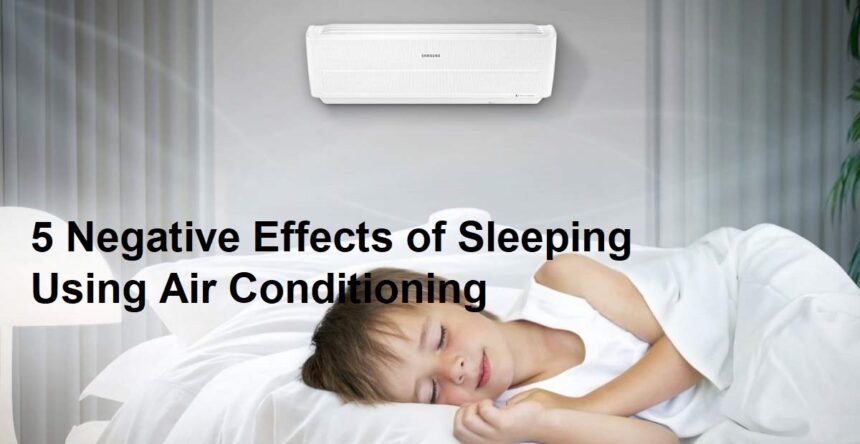Introduction
Air conditioning has become an essential part of modern life, especially in hot and humid climates. Many people rely on AC units to stay cool and comfortable during sleep, especially during sweltering summer nights. However, while sleeping with an air conditioner on offers comfort, it can also have potential negative effects on health and well-being. Understanding these risks can help you make better choices about your sleep environment.
1. Dryness and Dehydration
One of the most common issues associated with sleeping in an air-conditioned room is dryness. Air conditioning removes moisture from the air, leading to lower humidity levels. This dry environment can cause dehydration, especially if one does not drink enough water during the day.
Impact:
Dry skin, chapped lips, dry throat, and nasal congestion are typical symptoms. Over time, persistent dehydration can lead to headaches, fatigue, and even worsen respiratory conditions such as allergies or asthma.
Solution:
Use a humidifier in the room or place a bowl of water near the AC unit to add moisture. Drink plenty of water before bedtime to stay hydrated.
2. Respiratory Problems and Allergies
Air conditioners often circulate dust, pollen, mold spores, and other allergens present in the environment. If not maintained properly, AC units can harbor mold and bacteria, which are then distributed into the air.
Impact:
Sleeping in a room with a poorly maintained AC can aggravate respiratory problems, trigger allergies, or cause sinus issues. People with asthma or allergic rhinitis are at higher risk.
Solution:
Regularly clean and service your air conditioner. Use high-efficiency filters, and replace them as recommended. Keep your room clean and free of dust and mold to minimize airborne allergens.
3. Disruption of Sleep Patterns
While air conditioning can help keep the room cool, it may also interfere with natural sleep cycles if used improperly. Extremely cold temperatures or inconsistent cooling can disturb your sleep stages, leading to restless nights or waking up feeling tired.
Impact:
Poor sleep quality affects mental alertness, mood, and overall health. It can also weaken the immune system, making you more susceptible to illnesses.
Solution:
Set your AC to a moderate temperature, ideally around 24-26°C (75-78°F). Use a fan or sleep in a room with good airflow to prevent overcooling. Establish a consistent sleep routine to improve overall sleep quality.
4. Skin Problems
Prolonged exposure to dry, cold air can negatively impact your skin. The lack of humidity and exposure to cold air can strip the skin of its natural oils, leading to dryness, peeling, and premature aging.
Impact:
Dry, flaky skin, fine lines, and increased sensitivity are common. In some cases, it may exacerbate skin conditions such as eczema or dermatitis.
Solution:
Apply a good moisturizer before bed to lock in hydration. Use gentle, hydrating skin products and avoid hot showers that can further dry out your skin.
5. Increased Risk of Musculoskeletal Issues
Sleeping in an environment with a cold breeze or a heavily air-conditioned room can cause muscle stiffness and joint pain. Exposure to cold air for extended periods can lead to muscle tightness, cramps, or even exacerbate existing conditions like arthritis.
Impact:
Waking up with stiff muscles, soreness, or joint pain can affect daily activities and overall comfort.
Solution:
Set your AC to a comfortable temperature rather than a very cold one. Use blankets to keep your body warm and avoid direct airflow blowing onto your body during sleep.
Final Thoughts
While air conditioning provides much-needed relief during hot weather, it’s essential to be mindful of its potential negative effects on health. Proper maintenance, setting appropriate temperatures, and taking measures to maintain humidity and comfort can minimize these risks.
A balanced sleeping environment ensures restful sleep and supports overall health. If you experience persistent issues like dry skin, allergies, or sleep disturbances despite taking precautions, consult a healthcare professional for tailored advice.
Remember, comfort and health go hand-in-hand — so enjoy your cool, restful nights wisely!












